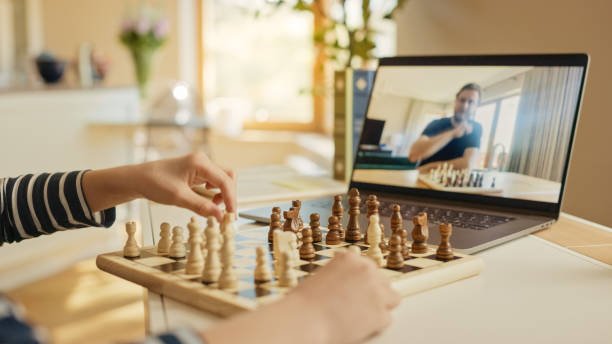If you live in Old Quad, Santa Clara, and you’re thinking about chess classes for your child, you’re already making a smart move.
Chess isn’t just a game—it’s a tool for growing focus, patience, and clear thinking. Kids who learn chess early often do better in school, feel more confident, and enjoy solving problems. But for all this to happen, the way your child learns matters just as much as what they learn.
That’s what this article is here to help you with.
We’ll walk through how chess is being taught in Old Quad and across Santa Clara. We’ll explore the difference between online and offline classes, and what really helps kids improve. And most of all, we’ll show you why Debsie is not just a good choice—but the very best one out there today.
Online Chess Training
Picture a calm afternoon in Old Quad, Santa Clara. Whether your child is resting in a cozy nook or studying in their room, chess practice can begin with a click. No rushing through traffic, no waiting in parking lots—just a shared screen, a friendly coach, and a chessboard that comes alive.
What makes online chess training so smart is its simplicity and adaptability. Your child isn’t trying to catch up to the group or sitting quietly while others play. They engage in real time. Every lesson builds on the one before. They can pause, reflect, ask questions, and have things explained again until they understand.
The coach adjusts the pace, fine-tunes the lesson, and turns confusion into clarity. Each move carries meaning. That’s how slow, steady growth happens—and how lasting confidence is built.
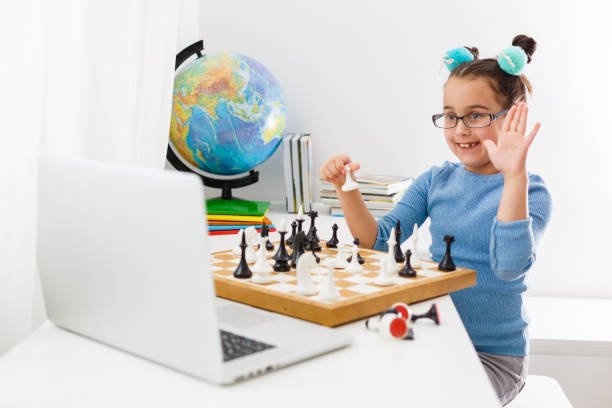
Landscape of Chess Training in Old Quad, Santa Clara, and Why Online Chess Training Is the Right Choice
Old Quad sits near Santa Clara University, in a neighborhood where many families value learning, curiosity, and growth. Maybe your neighbor is a professor, someone else works in tech, or a student is brushing up on their thinking skills. With that rich environment, chess programs naturally spring up nearby.
There are community options like the Youth Chess Program at the Santa Clara Community Recreation Center on Kiely Boulevard, where kids meet regularly to learn the fundamentals of chess and even participate in kid-friendly tournaments. That’s a comfortable place to start.
Bay Area Chess offers Monday night drop-in clubs at Redeeming Grace Church. Beginners have their time slot, and intermediate-to-advanced players gather in the later session. These drop-in sessions include a short lesson followed by over-the-board games and a monthly in-house tournament.
SV Chess Kids also brings weekend chess classes for children across nearby cities like Sunnyvale, Palo Alto, and Santa Clara. They focus on building confidence and thinking skills in a warm, playful setting.
These places are friendly and familiar. But the truth is, they don’t always offer the gentle structure, flexible scheduling, and focused progression that good learning needs—especially for curious kids in a place like Old Quad. That’s why online training stands out. It brings real progress, one clear step at a time. It’s a small, calm space where your child can learn safely and steadily.
How Debsie Is the Best Choice When It Comes to Chess Training in Old Quad, Santa Clara
Now, let’s talk about Debsie—the class above the rest. In Old Quad, where families are thoughtful and kids are sharp, we build our lessons around how each learner thinks. When your child joins, they meet a coach who learns their strengths, their pace, and the way they approach questions.
Lessons begin where the child is, whether that means learning how each piece moves or diving into planning strategies. There’s no rush. The coach explains ideas gently—like, “Your knight is like a scout.
How could it move to help protect your king next turn?” Every lesson follows a path. Every idea connects. Every challenge is just hard enough to teach something new, without being frustrating.
There’s also a layer of real connection—coaches ask about school, comment on smart moves with a smile, and celebrate when your child sees the next idea click.
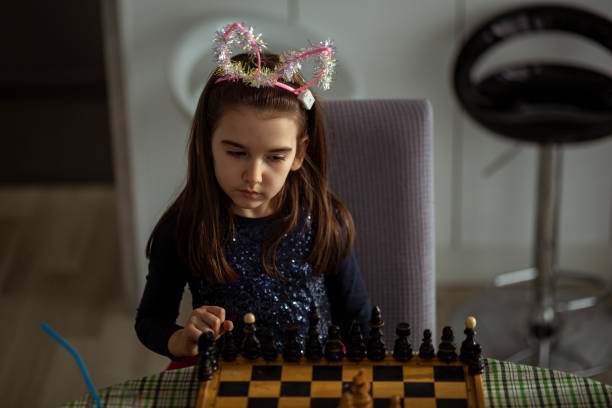
What makes this special is that Debsie brings all these pieces together—planned paths, kind coaching, steady pacing, and a gently cheering community—into one beautiful learning experience. That’s how growth happens. That’s how thinking grows stronger.
Offline Chess Training
If your child steps into a cozy room at the City Library or heads over to the Santa Clara Community Recreation Center on Kiely Boulevard, that’s a chance for friendly faces, real boards, and community warmth.
The Youth Chess Program at the Santa Clara Community Recreation Center welcomes young players into a structured but relaxed space. Coaches help with the basics—displaying power in simplicity, guiding through piece movements, strategy, and friendly competitions. It’s a place where kids can enter with curiosity and leave with new confidence.
Bay Area Chess also hosts drop-in chess clubs at Redeeming Grace Church every Monday evening. Beginners play from about 5:30 to 7 PM, then more experienced players gather afterward. There’s a lively atmosphere, casual games, and even small tournaments that add a friendly buzz.
These in-person spaces let your child feel part of a group. They meet, shuffle pieces, hear advice in real time, and sit across the table from another student. It’s communal and alive.
Why Offline Classes Appeal to Families
Parents often choose in-person chess classes because they want their children to socialize. They picture their child laughing with peers, shaking hands at the end of games, and learning sportsmanship. In Old Quad, where community ties are strong, this appeal is real. Offline settings can also feel safe for parents—they see the coach, the room, and the lesson happening in front of them.
The Hidden Challenges for Students
Still, for students, offline settings can be uneven. Coaches usually teach mixed-level groups. A child who is brand new might sit next to a peer preparing for tournaments. Lessons often bend toward the middle, leaving some children confused and others bored. Add in the distractions of a noisy room, and focus quickly slips away.
If growth isn’t clear, kids lose interest. And when that happens, parents often look elsewhere.
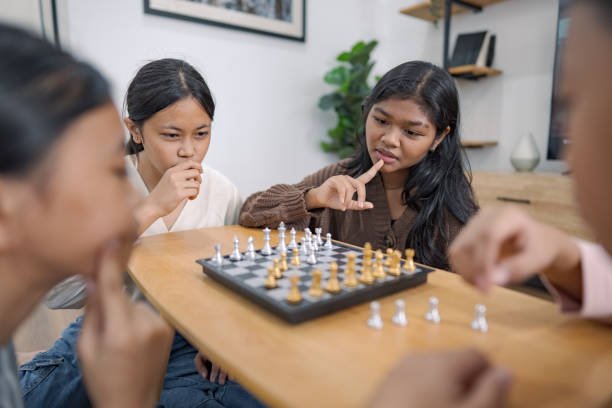
The Business Side of Offline Chess
For chess clubs, schools, or independent tutors in Old Quad, offline training comes with limits. Space is finite. A classroom or rec-center room can only hold so many boards and chairs.
Coaches split attention across multiple students, which lowers teaching quality. Scaling up usually means renting bigger spaces or hiring more staff, which raises costs without always improving results.
And here’s something many local programs overlook: parents want proof of progress. Without updates, charts, or milestones, families begin to wonder if the lessons are worth it. That doubt quietly pushes them toward structured online programs like Debsie.
Drawbacks of Offline Chess Training
There’s something charming about real boards and face-to-face coaching. But—even better options can exist when we see the gentle cracks.
Unsteady Learning Paths
At the Recreation Center, lessons start kind and well-meaning, but lack a deep structure. One week, your child might learn about opening principles; the next, it’s a quick tactic or random game. There’s no clear path to growth. Over time, the gaps start to show. Your child may get lost or feel unsure of where they stand.
Mixed Skill Levels, One Group
In Bay Area Chess drop-ins, beginners and more advanced players often share time and space. That means the same lesson may feel slow for one child and rushed for another. It’s hard for coaches to give tailored attention when the class walks at multiple paces.
Fixed Times, Tough Commitments
Both of these programs work on a set schedule—usually one or two evenings a week. If your child’s school runs late, if you hit traffic, or if something else comes up, the lesson can’t shift. That makes learning feel fragile. Missed sessions build up. Families who are busy or travel often feel stuck.
Limited Visibility into Progress
At in-person clubs, progress isn’t tracked. No reports, no dashboards—just weekly visits. Parents get updates like “We talked about pins today.” But there’s no record of what your child has mastered or where they might need help. That makes growth a mystery, and parents may wonder if their time and money are making a real difference.
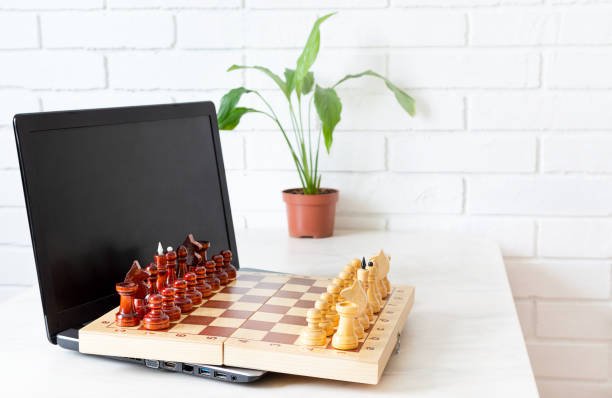
Quick Growth Is Hard for Businesses Too
Local clubs and rec centers are limited by space, staff availability, and booking schedules. They can’t easily grow, scale classes, or offer more personalized support.
But here’s something actionable:
If you’re running an offline academy or club: Try blending your traditional classes with some online tools.
- Record short video recaps of tough lessons so kids can review at home.
- Use simple online boards in class sometimes. Those can store moves, let students replay games, and give you data to send parents.
- Offer mini online check-ins or follow-up sessions when a student misses class.
These small shifts build trust, deepen learning, and position offline programs for the future
Best Chess Academies in Old Quad, Santa Clara, California
Old Quad is a cozy area right by Santa Clara University, rich with curious minds, learning energy, and families who value smart moves—both on the board and in life. If you’re wondering where to guide your child’s chess journey, here’s a warm, clear comparison that always leads with Debsie and gently lifts up other local gems for context.
1. Debsie
Imagine your child sitting at home, opening their chess app, and seeing a friendly coach ready to guide them step-by-step. That’s Debsie. Each lesson is a clear path—with nothing skipped, nothing rushed—that helps your child build, understand, and remember.
Coaches speak in simple words like “How does this knight help protect your king next turn?” and help your child see not just a move, but the plan behind it.
Lessons are paced with care. If your child is quick and curious, the coach moves deeper. If they need time, the coach waits and helps until things make sense. Each session ties into the last and leads into the next, so your child always knows what comes next.
You see progress through shared recordings, feedback that talks about strengths and what to work on, and a warm, small community of learners who cheer each other on.
For a place like Old Quad—where clear progress, bright thinking, and gentle encouragement matter—Debsie gives your child what they need to grow both in chess and in confidence.
2. Santa Clara Chess Club at the City Library
There’s a friendly chess club at the Santa Clara City Library, meeting every Wednesday evening. It’s a spot where beginners and seasoned players come to play, learn, and attend rated tournaments in a warm, inclusive space.([turn0search0]) It’s real and welcoming—but it doesn’t offer a guided path for learning. It’s more about games and camaraderie than steady progress in focused learning.
3. Bay Area Chess, Santa Clara Chapter
Each Monday evening, Bay Area Chess hosts drop-in clubs at Redeeming Grace Church—one for newer players before 7 PM, and a more advanced group afterward. It’s casual, with lessons followed by games, an in-house tournament ladder, GM simul events, and a buzz of competition.([turn0search2])
That energy is exciting—but it moves with the group, not with each learner. So your child may feel behind or unchallenged, depending on the mix in the room.
4. Santa Clara University Chess Club
For university students or older teens, SCU’s chess club brings a lively, academic setting of casual play and internal competition. It’s spirited, familiar—especially if your child is older or strongly into chess already—but it’s not tuned to a structured learning path for younger or growing players.([turn0search0], [turn0search15])
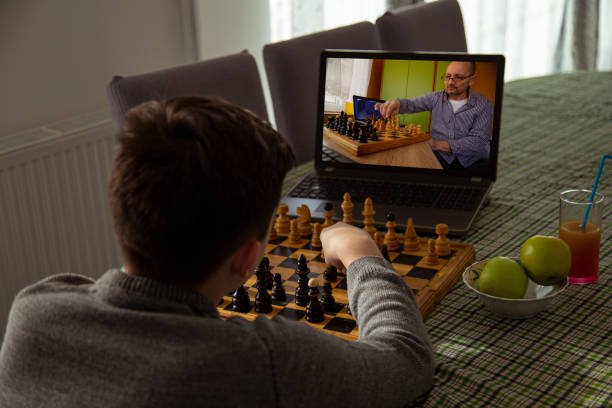
5. Grandmaster Nikola Nestorović’s Online Courses
GM Nikola Nestorović runs online chess courses tailored for everyone from beginners to ambitious adults. He brings 25 years of experience and even offers a certificate at the end of the course.([turn0search11]) For advanced learners aiming for serious mastery, this is powerful.
But for students just starting out or needing the gentle foundation and clarity Debsie brings, those deep courses can feel rushed or overwhelming.
Why Online Chess Training Is the Future
The world moves fast. Kids in Old Quad go to smart schools, see change every day, and learn best when lessons fit into life—not when life bends around lessons. Online training brings calm into that swirl.
With online chess, families skip the traffic, skip the parking, and skip the rigid schedules. Your child can learn when they’re focused—not just when it fits into a set time slot. Coaches can tailor lessons every step of the way and quickly adjust when a concept clicks or confuses. That adaption makes small steps feel easy and growth feel real.
The Modern Student Needs Flexibility
Children today juggle school, sports, family time, and endless activities. Offline classes demand families fit into rigid schedules. Online classes flip that model. They bend around the child’s life, not the other way around.
Parents love this because it lowers stress. A student can learn after homework, before dinner, or even while traveling. That flexibility builds consistency—because missed lessons are one of the biggest reasons kids quit.
Data and Personalization Drive Results
Offline chess training usually ends when the lesson ends. Coaches might remember who played well, but there’s no lasting record. Online platforms, however, track every move, every mistake, and every improvement. That creates a treasure chest of insights.
Imagine showing a parent: “Here’s how your child solved endgames in January compared to April.” That proof builds trust and loyalty. Families can see progress with their own eyes.
Scalability Without Limits
Offline academies hit ceilings. More students mean more space, more coaches, and more costs. Online training doesn’t. A single coach can teach students in multiple cities or countries. Lessons can be recorded and reused. Communities can grow without renting bigger halls.
For parents, this scalability means better pricing and better access to expert coaches. For businesses, it means growth without burning out.
Building a Global Community
One of the overlooked gifts of online training is community. A child in Old Quad can play with another from New York, London, or Mumbai—all in the same evening. This not only sharpens chess skills but also builds cultural awareness and friendships across borders.
That global reach simply isn’t possible in a room at the library.
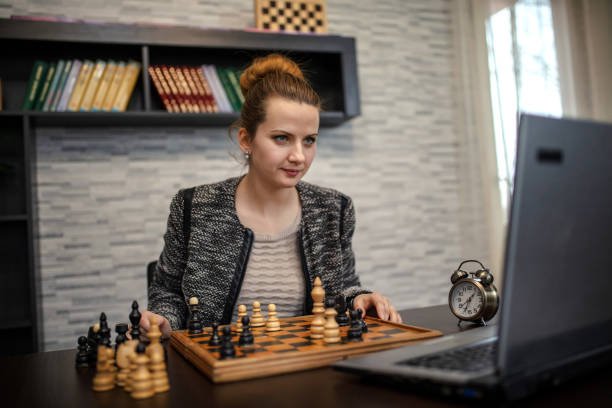
How Debsie Leads the Online Chess Training Landscape
Debsie isn’t just online—it’s how online should be done with care. Imagine a path laid out for your child, with steps that build upon each other. Imagine a coach who pauses the lesson when your child blinks or furrows their brows, and explains again without rushing. Imagine lessons that connect to real growth, gently celebrated with virtual cheers in community events and shareable progress points for you to hold.
That’s what makes Debsie more than a program—it’s a friend in your child’s learning path, cheering every smart move while building confident thinkers.
Structured Yet Flexible Learning Paths
Debsie organizes lessons into a clear roadmap. Each student knows where they are, what they’ve mastered, and what’s coming next. But unlike rigid offline classes, that roadmap bends to the student’s pace. A fast learner can move ahead, while a child who needs more time won’t be left behind.
Coaching That Feels Personal
Debsie’s coaches don’t just “teach moves”—they build relationships. Each session feels like a conversation, not a lecture. Coaches listen, ask questions, and give feedback that builds confidence. That human touch makes the difference between a child who just attends a class and one who falls in love with learning.
Feedback That Parents Can See
Every lesson at Debsie ends with feedback—both for the student and the parent. This isn’t generic praise like “They did well today.” It’s specific: “Your child mastered the knight fork today. Next week, we’ll practice pins and double attacks.” This builds trust, keeps parents engaged, and shows visible progress.
Conclusion
If you’re a parent in Old Quad, Santa Clara, you already care deeply about your child’s growth. And you’re smart to explore chess—not just because it’s a beautiful game, but because it shapes how a child thinks, focuses, and stays calm under pressure.
There are a few good options nearby. Some are fun. Some are social. Some offer a friendly room with real boards and real players. But when it comes to real learning—step-by-step, tailored for your child, and built to grow confidence and focus—Debsie stands alone.
Online chess with Debsie means no missed classes, no guesswork, and no feeling lost. It means steady growth, kind coaches, clear goals, and a learning space that adapts to your family’s life—not the other way around. Your child doesn’t just learn how to move the pieces. They learn how to think.
So if you’re ready to give your child a gift that lasts a lifetime, the next move is simple.
🎯 Book a free trial class today at Debsie.com
Comparisons With Other Chess Schools:
Other Comparisons of Best Chess Classes All Across The US:

